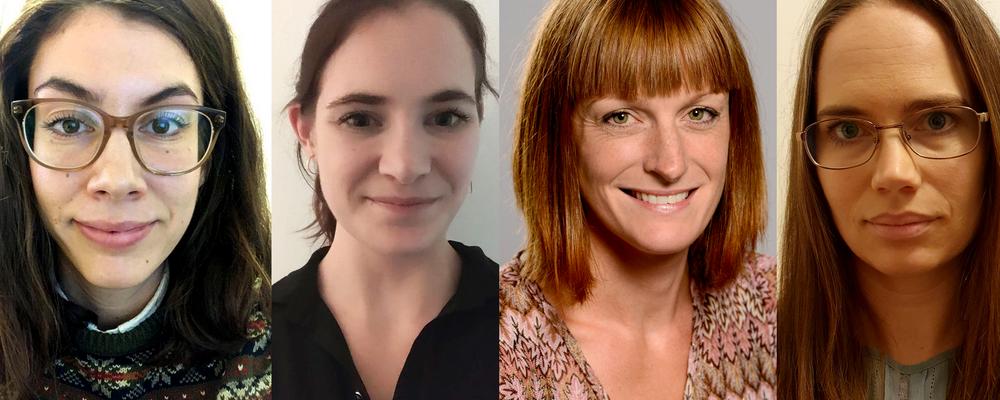In her will, Elisabeth “Bollan” Lindén donated SEK 2.4 million to the University of Gothenburg to establish the stipend. The stipend awards a total of SEK 250,000 annually to up to five applicants, who must be doctoral students or researchers who have completed their dissertations within the last five years.
New Concept for Improved Vaccine Design
Ebba Samuelsson hopes that her studies will show that glycosylation of a protein, which involves placing chains of sugar molecules on the protein, can influence effectiveness when the protein is used as a vaccine.
She is studying the tick-borne encephalitis virus, but her work will also provide understanding for other vaccines made from glycosylated proteins and can be used, for example, to improve vaccines for SARS-CoV-2.
“We have previously been able to show that glycosylation affects the ability of antibodies to recognize the virus’ glycoprotein. Now we want to use this knowledge when new vaccines are designed and produced, so that we can hopefully develop more effective vaccines in the future,” says Ebba.
Knowledge of unusual but serious diseases
Andrea Persson's project is also focused on glycosylation, though she is mapping and improving diagnoses and treatment of genetic hereditary defects behind unusual but serious diseases. This includes looking more closely at Ehlers-Danlos syndromes, which include over 10 known diseases. At present, it can take several years to confirm a diagnosis.
Two variants of the diseases are caused by mutations of specific enzymes included in biosynthesis of glycosaminoclycans, where at least 50 enzymes are involved. There are probably more diseases related to mutations of other enzymes in the same category that have not yet been discovered.
“We hope our research will be able to develop tools to simplify and speed up diagnosis. We will also gain new knowledge about these unusual diseases, which may lead to improved treatment in the future,” says Andrea.
Mechanisms behind sarcoma cancers
In her project, Malin Lindén studies specific oncogenes (known as FET) that are characteristic of 15–25 types of sarcoma and leukemia cancers. Recently, the research team, led by Malin, discovered that FET oncoproteins interact with the enzyme complex SWI/SNF, which regulates cell gene expression, maturity and growth.
“What the research has not been able to clarify is where these proteins bind to SWI/SNF and how the enzyme complex then changes. So, we will analyze the complex’s composition in sarcoma cells, and the Proteomics Core Facility’s knowledge of proteins and complex analysis methods will be immensely helpful in this effort,” says Malin.
Improved diagnostics of heart attacks
Karin Starnberg studies how the medical care system can diagnose heart attacks more quickly and safely by looking more closely for the presence of troponins in the blood. Troponins are proteins that become measurable in the blood in cases of acute injury, such as a heart attack.
The problem is that even low troponin values can mean a higher risk of death, and people with long-term elevated troponin values have a ten times higher risk of having heart complications or dying, compared to people without elevated values.
“With a poor understanding of the mechanisms behind this, there is currently no specific treatment. The aims of the study are therefore to understand the underlying causes of long-term elevated levels and hopefully find treatments and better tools for diagnostics. We are focusing on a newly discovered purification system for proteins between cells, known as local purification,” says Karin.
For Ebba Samuelsson, the Bollan stipend funds her work at the MPE facility. Andrea Persson and Malin Lindén will work at the Proteomics platform. For Karin Starnberg, the stipend provides access to the CCI and EBM platforms.
